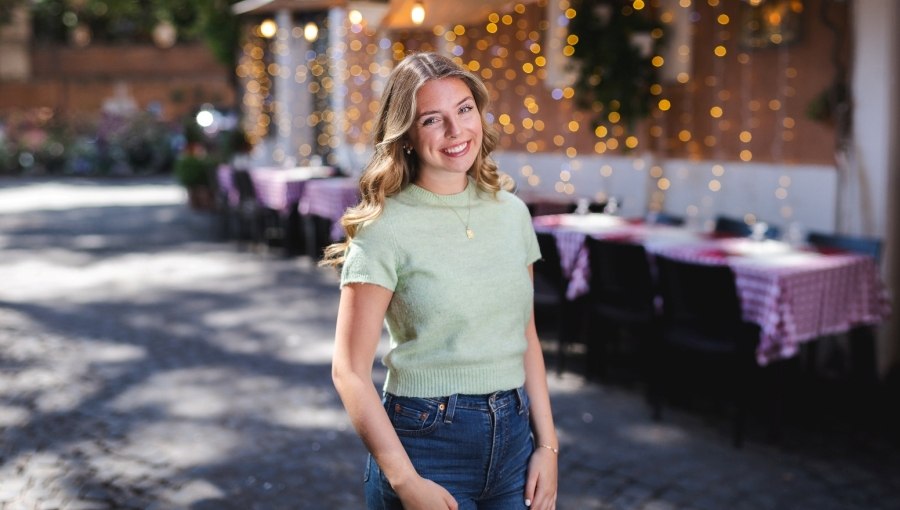Music Against Violence: Student Karima 2G Performs for Amnesty International
JCU student and rapper Anna Maria Gehnyei, aka Karima 2G, recently wrote and performed lead vocals on “Roots,” a song recorded in collaboration with the History Channel and Amnesty International Italia, that aims to fight contemporary slavery. It features Karima 2G and the voices of four modern-day slaves: Vera, Jessica, Suleman, and Sarbjit. The two women were forced into prostitution, while the men were hired illegally and paid ridiculously low wages. Roots was recorded for the reboot of the TV series of the same name that aired in the seventies, and can be purchased on BandCamp and iTunes. All proceedings will be donated to Amnesty International Italia. We sat down with Karima, who is majoring in both Communications and Political Science, to talk about the project.
How did you get involved with this project?
Raffaele Costantino and Maurizio Bilancioni from Snob Studio contacted me to write a song inspired by traditional work songs that African American slaves sang as they labored in the fields. They approached me because in my music I speak up against injustice and advocate for human rights.
What did participating in Roots mean to you?
I watched the original Roots miniseries when I was little because my father wanted to educate me about my heritage. It always captivated me, and I remember it vividly to this day. The historical events depicted in Roots connected me to my heritage.
Working one on one with the victims of contemporary slavery was very challenging, both mentally and emotionally. They were very tense in the beginning, but I told them to embrace their past and express it in the song, using the music as a tool against violence. In the end, the song is not only about me, or them, but a cathartic experience for anyone who has struggled against injustice. It was our moment to speak out to the world, telling everyone that we still had our integrity and that we were not afraid of what the future might hold. Together we sang, “I got my roots with me, I got my dignity, I got my roots with me, I got my freedom.”
Considering the populist and xenophobic tides rising in Europe and the US, do you believe that there is a place for more projects like yours? Why?
Yes, I believe that people should be informed about their own cultural heritage in order to live in harmony with themselves and other human beings. Specifically, black people should acknowledge the role played by slavery in the shaping of black and American culture. I am firmly convinced that studying history is the key to learning from the mistakes of the past and defeating the brutalities of society, such as slavery .
Did you participate in similar projects before?
Together with my classmates Angela Pirro and Alessandro Marchesini, I made a documentary called I will be protected for Prof. Kwame Phillips’ Foundations of Digital Video Production class (in Fall 2016). The documentary, made in collaboration with Synergasia – Cooperativa Sociale Onlus of Rome, explores the motivations that make refugees leave their countries and endanger their lives, in order to chase a risky dream. The project turned out to be more than a strictly academic experience. We unexpectedly found ourselves building emotional bonds with each other and with the refugees we interviewed. I would say it was a life-changing experience.
What are your current and future projects?
As of now, I am working on a record, but I can’t give any details yet. I am also participating in a conference with Professor Annarita Taronna, who studies the Pidgin English of second generation immigrants and has interviewed me to analyze my lyrics within this context. She will present her book Black Englishes. Pratiche linguistiche transfrontaliere (Cross-border Linguistic Practices), which includes an entire segment on my dialect, at the University of Bari Aldo Moro.






